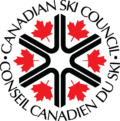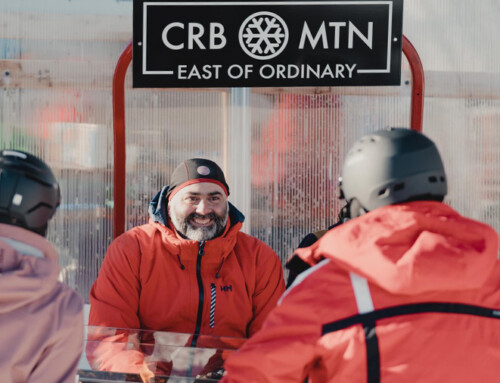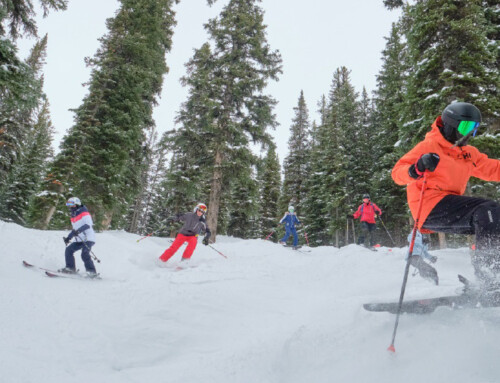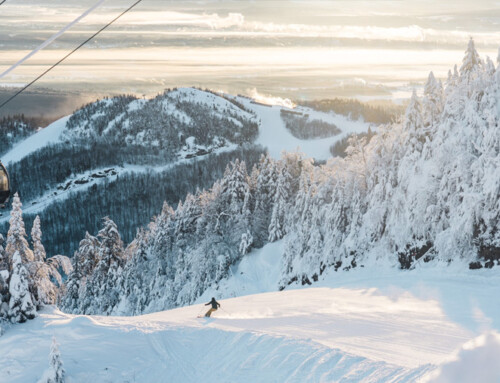STORY & PHOTOGRAPHY: S-Media
There are tangible reasons why the province of Quebec consistently produces world-class moguls talent. Perhaps far stronger are the intangibles — the engaging, inspirational personalities of the champions. The provincial pride. The passion.
David Mirota, high-performance director for the Canadian Freestyle Ski Association, notes the cycle of success, the snowball effect.
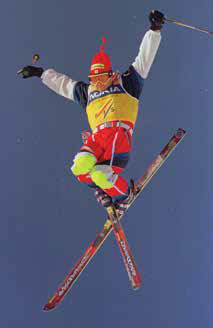
“Jean-Luc Brassard was the kickstart, especially in Quebec. He’s such a gentleman and such a great champion for the sport,” Mirota said. “The other piece is the cycle effect we’ve had in the past 20 years of athletes who starred in the sport moving up through the provincial team ranks and national team ranks, and they’ve brought their passion into the clubs as coaches.”
Brassard’s 1994 gold was the first of many Olympic successes for Canada and, specifically, Quebec. Of the seven men’s gold medals awarded in moguls, three have gone to Quebec athletes — Brassard in 1994, and Bilodeau in 2010 and 2014. Native Albertan but Montreal resident Jennifer Heil (2006, Torino) and Justine Dufour-Lapointe (2014, Sochi) added to Canada’s gold medal moguls heritage.
Quebec has tremendous funding at the provincial level that bolsters the development of young athletes, plus strong facilities, including the Val Saint-Come Freestyle Excellence Centre, water ramps, and airbag stations.
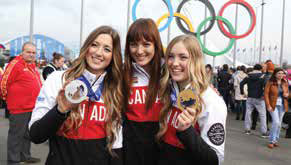
Mirota points to stability at the club coaching ranks and the provincial coaching hierarchy as a factor in producing national team athletes. And the “always give back” mentality of the sport’s stars. A lot of the athletes, Mirota notes, go back to the clubs to connect with young competitors. Bilodeau will ski over the holidays with kids at Mont Saint- Sauveur. The Dufour-Lapointes hold their annual girls camps in April.
“These mentors bring that star system, that passion and experience, which is recycled back up.” Mirota said.
Even Brassard, the man who started all the bumps buzz, continues to spark dreams to this day, having served as assistant chef de mission for the Canadian Olympic Team for Sochi 2014. Brassard was named Canada’s chef de mission for the 2016 Rio Olympics. “In Sochi, having Jean-Luc there as assistant chef de mission 20 years after his Lillehammer win was very inspirational,” Mirota said.
Geography, topography, and lifestyle all factor into Quebec’s winning moguls equation. Brassard told The Globe and Mail in a 2014 interview that the province’s smaller mountains and challenging weather can foster moguls development. “We’re kind of a victim of our mountains,” Brassard said. “Our mountains are very small and they suit very well a mogul course, and basically every centre has a mogul course.”
Quebec’s moguls locomotive shows no signs of slowing down. Kingsbury already has 21 World Cup wins and four World Championships medals, plus a silver from Sochi. Quebec native Philippe Marquis — slowed by injuries the past few seasons — won the season opener in Ruka, Finland, while Chloe Dufour-Lapointe — under the guidance of new women’s coach Michel Hamelin — took second.
The World Cup moguls tour was primed for North American stops in January — Calgary, then Deer Valley, Utah, and Lake Placid, N.Y., with the world’s elite stopping at Val Saint-Come for a Feb. 7 showcase.
“Having major events like World Cups every year in Quebec provides that star system where local kids get to see a Mikael Kingsbury, Alexandre Bilodeau, the Dufour-Lapointes, competing,” Mirota said. “That accessibility is huge.”
